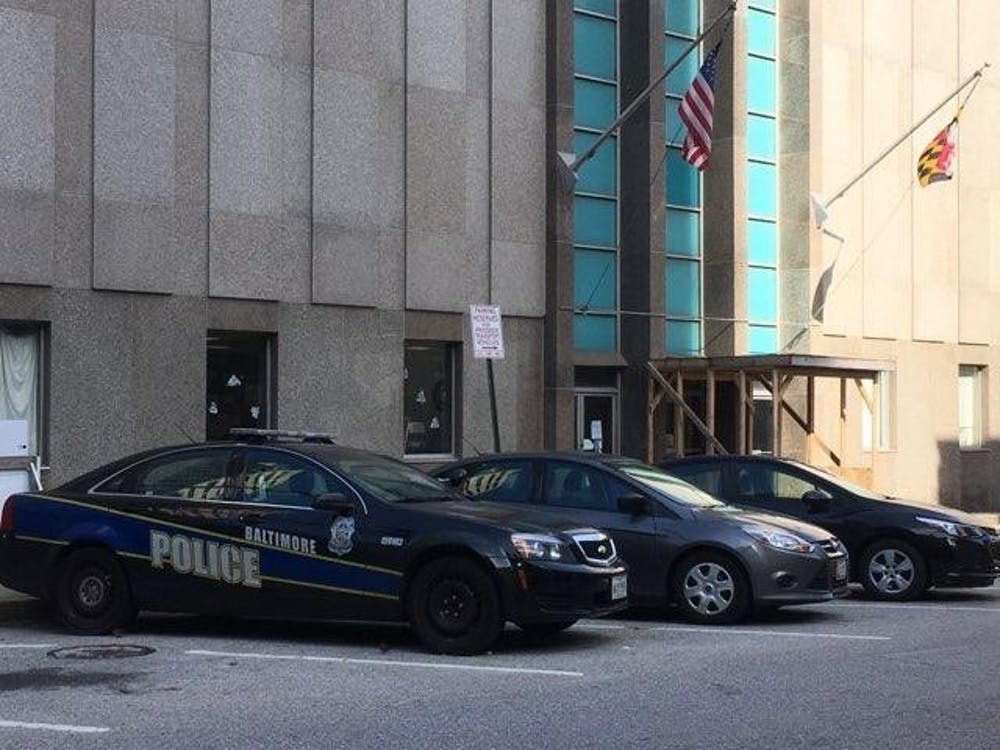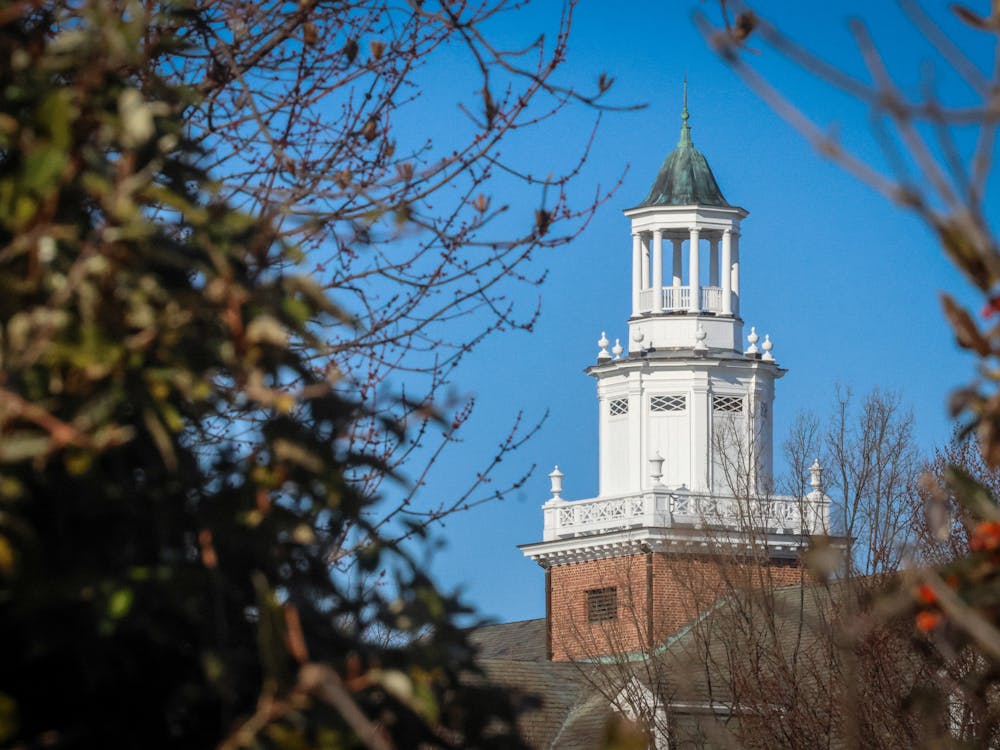The Judiciary Committee of the Maryland House of Delegates held a session on Feb. 23 to discuss House Bill 336 (HB0336) and House Bill 1284 (HB1284). Both bills, if passed, will repeal past laws related to the establishment and maintenance of the Johns Hopkins Police Department (JHPD). HB0336 would also prohibit all private universities in Maryland from establishing their own police forces.
Following nationwide protests last summer after the death of George Floyd, University President Ronald J. Daniels announced that all plans related to the JHPD would be halted for at least two years. In late August, the University also paused the Police Accountability Board, tasked with overseeing the formation of the JHPD.
At the session, Delegate Julian Ivey, sponsor of HB0336, underscored the importance of addressing nationwide calls for police reform.
“We must take the necessary steps to restore the public’s trust with the already established police departments we have across the state, rather than allowing for privatized police departments to be established at these institutions,“ he said.
François Furstenberg, a history professor at Hopkins, testified in support of HB1284, claiming that the University’s efforts have not genuinely been on behalf of students, faculty and community members who will be most impacted by a private police force.
“The decision came from the president and the Board of Trustees, and it was made long before there was any consultation with anybody,“ he said. “The Board of Trustees is composed of 36 people, and only six of them live in Baltimore. They want this, not the communities that will be policed.”
In an email to The News-Letter, Karen Lancaster, assistant vice president of external relations for the Office of Communications, highlighted that the 2019 legislation allowing the creation of the JHPD came from years of discussions among different parties.
“It reflects scores of conversations with members of the JHU community and our Baltimore neighbors, as well as extensive collaboration with our legislative leaders, and it includes comprehensive accountability measures that provide more public and community oversight than any other Maryland law enforcement body,” she wrote.
However, Toby Ditz, a history professor at Hopkins, argued at the session that increasing the number of separate police forces would complicate law enforcement by making it harder to establish accountability.
Senior Colin Bilyeu also testified in support of HB0336 on behalf of the Coalition Against Policing by Hopkins (CAPH), citing evidence that police reform has been ineffective at mitigating police brutality against minorities.
“Body camera reforms were instituted in 2006, and nearly a decade later, the ACLU [American Civil Liberties Union] unveiled that 109 people in Maryland died at the hands of police wearing those very cameras in a mere four-year span,” he said. “In that group, there are nearly 20 Black people each and every year.”
He pointed out that existing Hopkins security has demonstrated its ability to address on-campus situations nonviolently.
“This summer, Hopkins security called [the Baltimore Police Department] on a student having a mental health crisis on campus,“ he said. “Thankfully, the student had calmed down by the time police arrived. With no police present, de-escalation by [the University’s] already existing security resolved the situation safely.”
In response, Delegate Lauren Arikan stressed that, though HB1284 would potentially repeal Hopkins policing, it would not necessarily reduce armed police presence on or near campus.
“This bill doesn’t impact armed police officers being on campus because what [the University would] do if it didn’t have its own force is simply have Baltimore City police officers armed,” she said. “When I used to go to Hopkins, there [were] always armed police officers.”
In an interview with The News-Letter, Bilyeu argued that although the goal of JHPD is to make the campus and community safer, the result could be the exact opposite.
“We have seen that cops don’t actually reduce crime. Rather, they remove it from site after it happens,“ he said. “Not only does policing pose a risk to marginalized groups, but it exacerbates what leads to crime, severing community ties, fostering antagonism and removing economic opportunity for those it acts on.”
Lancaster explained that the University chose to pause the creation of the JHPD in order to see how Maryland’s future legislative work would affect its plans.
“During this pause, we will continue to partner with the community to develop additional, innovative approaches to public safety, like the new $6 million, four-year JHU Innovation Fund for Community Safety,” she wrote.
Sophomore Feven Welde, a member of the Black Student Union, feels that though the University’s suspension of JHPD-related activities was a considerate response to the concerns voiced by Hopkins affiliates and community members, the administration may also have wanted to disrupt the organization of the opposition.
“It’s almost to [the University]’s advantage because now the students that participated in the Sit-In [will have] graduated,” she said.
Welde believes that the University needs to do more to prioritize the views of community members. She stated that though instituting a private police force on campus might put Black students at risk during their time at Hopkins, members of the community would feel the impact of heightened policing long after students have graduated.
Donald Gresham, president of the Baltimore Redevelopment Action Coalition for Empowerment (BRACE), spoke to the growing skepticism of the University’s involvement with the community.
“We know people who are never going to be affected by [the legislation] are making the decisions for communities that will be policed, and we feel like there’s no trust,” he said. “We know there is a history, and we know that anything Hopkins does, particularly with the community, doesn’t end well for us.”
Gresham pointed out that the money spent on pushing private policing legislation could be better spent in other areas.
“The money that they spent lobbying for it wasn’t cheap,“ he said. “If we had real community participation, we could no doubt spend that money more wisely. They need to spend that money on education and being a ‘good neighbor.’”
Bilyeu emphasized that existing initiatives to decrease determinants of crime have proven effective.
“What that can look like is violence interruption programs like Safe Streets [Baltimore],“ he said. “It has been shown statistically that Safe Streets works in interrupting the social preconditions for crime while also offering the economic opportunities that prevent crime in the first place.”
Jill Carter, state senator representing Northwest Baltimore, introduced the Senate version of HB1284, Senate Bill 276 (SB0276). This bill was presented at a Senate hearing on Jan. 21 and is awaiting further action. However, Senator Cory McCray has not included this bill in the agenda for the next senate hearing on March 5.
CAPH member Andrew Eneim explained that the bill is being unfairly barred from a hearing by members of the Senate in an email to The News-Letter.
“[Senator Cory McCray] is making the claim that SB0276 is not a city delegation bill and therefore will not get a hearing,” he wrote. “The Senate Judicial Proceedings Committee said that it is a city delegation bill and cannot bring for a vote until the delegation acts.”
In response, CAPH created the Media Toolkit to Stop Hopkins Police to provide the public with templates for statements to send to local lawmakers regarding SB0276.
Both HB1284 and HB0336 passed the first reading and will be referred to a committee in the House of Delegates.
Michelle Limpe contributed reporting to the article.

















